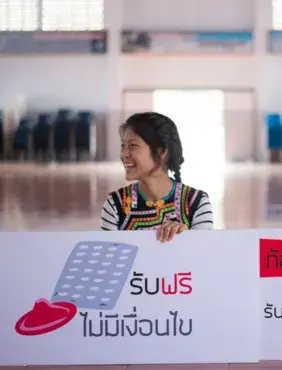On 15 to 17 November, the Seventh Asian and Pacific Population Conference will be held at the United Nations Conference Centre in Bangkok and online. The Conference is organized by the United Nations Economic and Social Commission for Asia and the Pacific (UN ESCAP) in collaboration with the United Nations Population Fund (UNFPA) in Asia and the Pacific.
Mandate and context
Pursuant to ESCAP resolution 74 (XXIII) of 17 April 1967, the Conference is a statutory organ of UN ESCAP and convenes every ten years. The 2023 Conference and its preparatory process will coincide with other important events and developments:
- the 75-year anniversary of the Universal Declaration on Human rights
- the 60-year commemoration of the first Asian Population Conference, held in December 1963 in New Delhi, India,
- the 10-year anniversary of the adoption of the 2013 Asian and Pacific Ministerial Declaration on Population and Development.
- the half-way mark to achieving the 2030 Agenda for Sustainable Development in Asia and the Pacific.
- The 30-year review of the implementation of the Programme of Action of the International Conference on Population and Development during the fifty-seventh session of the Commission on Population and Development
The Conference will provide an opportunity to review the implementation of the Asian and Pacific Ministerial Declaration on Population and Development and the Programme of Action of the International Conference on Population and Development in the region. It will focus on intersecting population and development considerations as they relate to sustainable development, both now and in the future.
Population dynamics in Asia and the Pacific and Thailand
Population and development considerations are of great importance to Asia and the Pacific. The region is home to 60 per cent of the world’s population, and what happens here matters at the global level. Asia and the Pacific has been undergoing a momentous transition from high to low fertility and mortality levels and to increased longevity and migration levels, resulting in older, more urban populations. Within these broad trends, population dynamics differ across subregions and countries. For example, some are already experiencing population decline, whereas others continue to grow, albeit at a declining rate.
The region is at a critical juncture. In recent decades, countries have made considerable progress in overall socioeconomic development in terms of health, poverty eradication, sanitation, nutrition and education, to name a few. They now face both new and residual challenges and opportunities, such as a shrinking labour force, population ageing, and increased internal and international migration. Many people continue to face persistent socioeconomic inequalities – including gender inequality – disrespect for human rights and ageism. Inequalities and vulnerabilities have been exacerbated by climate change, disasters, conflicts, the COVID-19 pandemic and digital transformation.
The Seventh Asian and Pacific Population Conference will address these issues with a focus on placing people at the center of sustainable development.
For population and development progress and 11 challenges in Thailand including health, sexual and reproductive health, education, poverty eradication and employment and ageing in the Policy Brief on Thailand’s Population and Development.


